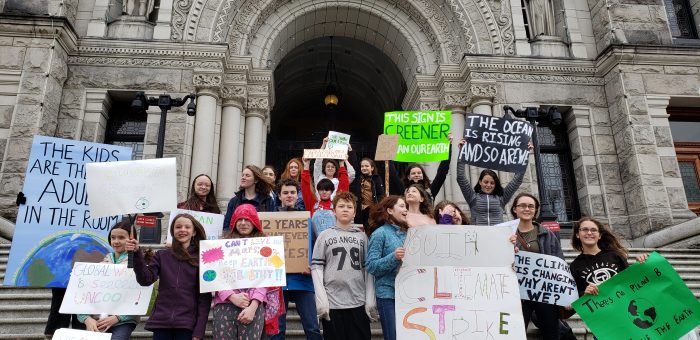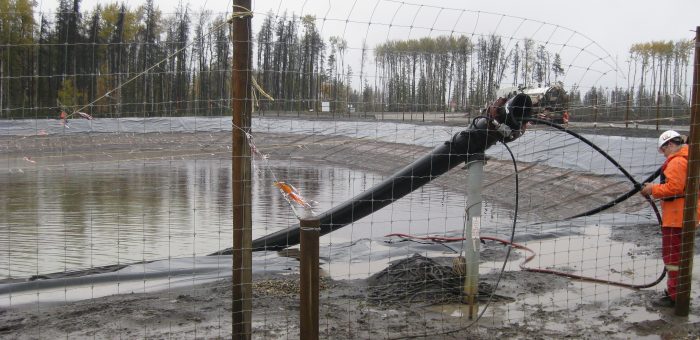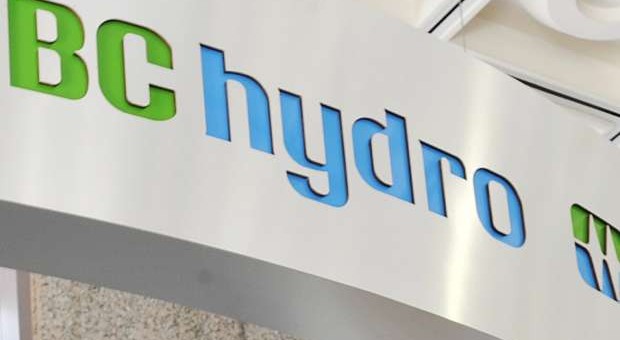Jobs
BC NDP & BC Liberals reveal they’re really two sides of the same coin
Last week the BC NDP and BC Liberals joined forces to pass Bill 10, Income Tax Amendment Act, 2019. This bill created tax credits and a fiscal regime for what will become the single largest point source of carbon emissions in Canada’s history two days after a government report confirmed that Canada is warming at twice the rate as the rest of the world, with the North, the Prairies and northern British Columbia pushing to nearly three times the global rate.
The BC Greens already voted against the Bill at first reading and at second reading (where we introduced three amendments to kill the bill that were all defeated). During our numerous speeches, Adam Olsen, Sonia Furstenau and I argued that it’s time politicians level with British Columbians about the economic and environmental consequences of this historic betrayal of future generations.
During committee stage of the bill, my BC Green colleagues and I voted against each section of the bill. It was during this stage that I was also able to find out that LNG Canada has no requirement to hire locally, despite BC NDP promises to the contrary. In addition, I was able to determine that the BC NDP have a moving definition of what “cleanest LNG in the world:” actually means.
| Section 1 | Section 2 | Section 3 | Section 5 | Title |
|---|---|---|---|---|
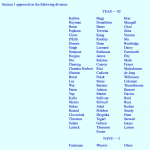 |
 |
 |
 |
 |
When section 4 of the bill was discussed at Committee Stage, the BC Liberals proposed an amendment that would strike out section 4b in the following:
4 The following Acts are repealed:
(a) Liquefied Natural Gas Income Tax Act, S.B.C. 2014, c. 34;
(b) Liquefied Natural Gas Project Agreements Act, S.B.C. 2015, c. 29.
That is, the BC Liberals did not want their Liquefied Natural Gas Project Agreements Act repealed.
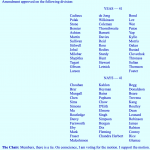 While the amendment was being debated there were a dozen or so MLAs in the chamber, and when the Assistant Deputy Speaker called for a verbal vote on the amendment the “Ayes” won. This simply means the MLAs in the chamber collectively said “Aye” louder than those saying “Nay” (I stayed silent). Given that the BC NDP lost the verbal vote, a number of them (and I) called for “Division” (a standing vote). Not interested in quibbling about how the deckchairs on the Titanic should be arranged as it starts to sink, I left the room. My colleagues Adam and Sonia were in other meetings in the building and were not present.
While the amendment was being debated there were a dozen or so MLAs in the chamber, and when the Assistant Deputy Speaker called for a verbal vote on the amendment the “Ayes” won. This simply means the MLAs in the chamber collectively said “Aye” louder than those saying “Nay” (I stayed silent). Given that the BC NDP lost the verbal vote, a number of them (and I) called for “Division” (a standing vote). Not interested in quibbling about how the deckchairs on the Titanic should be arranged as it starts to sink, I left the room. My colleagues Adam and Sonia were in other meetings in the building and were not present.
 The standing vote led to a tie: 41 BC Liberals for the amendment; 41 BC NDP against it. The 3 greens were not interested in amending a section we were about to vote against and so were not present. The tie was broken by the Assistant Deputy Speaker (a BC Liberal) and so the amendment passed, but not without controversy. The Assistant Deputy Speaker is supposed to be a non-partisan role.
The standing vote led to a tie: 41 BC Liberals for the amendment; 41 BC NDP against it. The 3 greens were not interested in amending a section we were about to vote against and so were not present. The tie was broken by the Assistant Deputy Speaker (a BC Liberal) and so the amendment passed, but not without controversy. The Assistant Deputy Speaker is supposed to be a non-partisan role.
In cases where there is a tie, there is a convention that should be followed to preserve confidence in the impartiality of the Speaker’s office. But here, the Assistant Deputy Speaker voted her “conscience” and the amendment passed. Moments later the amended section was put to a vote. Adam Sonia and I voted against that.
On Thursday last week the bill came up for third reading. Adam, Sonia and I rose to speak a final time. Sonia was shut down early by the speaker and so was unable to move an amendment to send the bill to a Legislative Committee. Adam and I both moved amendments, that Sonia spoke to, as we tried to persuade the BC NDP and BC Liberal MLAs the scale of the sellout embodied in Bill 10. Sadly, our two amendments failed and third reading passed.
| Amendment to Committee | Hoist Amendment | Third Reading |
|---|---|---|
 |
 |
 |
Below I reproduce my third reading speech as well as my speech to Adam’s hoist motion in both text and video format. I also reproduce a copy of the media release that we issued once Bill 10 passed.
Without a doubt, witnessing the BC NDP and the BC Liberal MLAs collectively vote against the three BC Greens fourteen times on this bill made it abundantly clear to me:
The BC Liberals and the BC NDP are two sides of the same neo-liberal coin.
3rd Reading Videos
| 3rd Reading & Motion to Send to Committee | Hoist Motion |
Text of 3rd Reading Speech
A. Weaver: I must say I am deeply troubled and deeply disturbed by the precedent set today in this Legislature at a time when it is quite clear from the standing orders as to the rules and regulations with respect to reading at third reading. We have been following very clearly the rules as demonstrated in the standing orders. I rise to speak to speak at third reading against this same bill.
My colleague from Cowichan Valley didn’t have the opportunity to bring forward this important information that has been brought to light during the debate, important information that is required by members of this chamber in order to make their decision, important information that reflects on the very nature of the bill-debating before us. The natural gas tax credit. The changes in the calculations that are being put forward.
It is only through a complete understanding of the complexities of the nuances in this bill, in the context of the global picture, that we are able to make an informed decision in this House. To have my colleague — to have her shut down in debate because of an interpretation that I believe is flawed is simply outrageous.
I do apologize for my comments here, but never before have I — in sitting here for six years in this chamber — seen what I believe to see: an interference of a member’s right to enter a debate on an issue subject to the standing orders that we have had guide this place for generations. I continue, as to provide the important information.
I see the House Leader for the government. They’re talking to the Speaker. I would suggest that is out of order as well in this moment here. So I continue.
Deputy Speaker: Member, the Chair would welcome any comments related, relevant, to Bill 10. So nobody is stopping anybody making those comments. I would urge the member to limit those comments just to the bill. Please carry on.
A. Weaver: These comments are to Bill 10. Bill 10, as has being articulated here, introduces three things. One, it tries to repeal the LNG Income Tax Act.
I would like to publicly note that right now, the House Leader of the government is providing advice to the Speaker in the Chair. In my view, that is outrageous. That is not something that should be happening. This is a non-partisan position. To see witness the Speaker getting advice being provided is surprising.
On to Bill 10.
Deputy Speaker: Member, please take your seat. The Chair will again urge all members who wish to speak on this bill in third reading: keep your comments relevant to the bill. That’s all we are asking for. The member wishes to continue? Please proceed.
A. Weaver: I do wish to continue, and I do apologize for challenging the decision there. But as I said, it’s troubling. I will continue on focusing solely on the bill, the number of points raised in the bill.
As I pointed out, there are three points in there. The first, of course, is the repealing of the LNG Income Tax Act. The second is the repealing of the Petronas agreement, the LNG project development agreement, which we now know — through the rather interesting amendment put forward by the opposition that has passed — will not be repealed as part of this. We enjoyed watching those deliberations and interesting to see how that moved forward.
We also know that the B.C. NDP, in this bill, are trying to retain the giveaway, the natural gas tax credit giveaway that is embedded in the original LNG Income Tax Act. We have three aspects of this bill. We have articulated in second reading time and time again….
I see in the gallery a young group of children, and I welcome them to this place. I would suggest to them, as we continue to explore this bill and the ramifications of this bill, that members in this House actually think about their future, members in the House actually recognize that this generational sellout embodied in this giveaway is not doing their future any good. Frankly, it is a betrayal of their future.
As my colleague from Cowichan Valley tried to articulate, there have been a numerous number of articles appearing that have highlighted the reason why this bill and the actual elements in it are inconsistent with the government’s goal to try to reduce greenhouse gas emissions. It is inconsistent to give away a tax credit to this industry that would not otherwise be here in British Columbia in a desperate attempt to try to deliver what Christy Clark couldn’t. That’s it. That’s the only rationale I can see behind this moving forward.
As my colleague from Saanich North and the Islands, who will speak after me, brings forward information on the bill, I would hope that members opposite, members in the B.C. Liberals, who have been saying for so long that they do not believe that this giveaway is actually fiscally responsible…. The member for Langley East was quite clear in that regard. The member from Abbotsford — not only was the member for Abbotsford West clear, his deconstructing of the job narrative that was supposed to be here was compelling. This government did not provide any information to back its claims that this agreement embodied in this bill would actually hire British Columbians.
In fact, just today I received an email from a contractor up in the north who validated the concerns I raised about Boskalis hiring temporary foreign workers. Today I received that email.
We are going to vote on a bill at third reading where information provided at the committee stage was either not provided in entirety or not delivered. We have yet to be given information. We were told in committee stage that we had to ask the Minister of Jobs, Trade and Technology questions before we get answers to the issues of how this would affect jobs. Those questions were delivered to the Finance Minister in committee stage, yet we did not get answers to those questions. How is it possible that we could actually vote in favour of bill where the answers were not forthcoming to fundamental questions raised by members of opposition and by members in the Green Party at committee stage?
It seems to me that if ever there was a reason to actually not continue forward and vote on this, if ever there was a reason to actually send this bill to committee for further deliberation and debate, that information would be the fact we didn’t get answers. It’s for that reason that I move:
[That the motion for third reading of Bill (No. 10) intituled Income Tax Amendment Act, 2019 be amended by deleting all the words after “that” and substituting therefore the following:
“Bill (No. 10) not be read a third time now but that the subject matter be referred to the Select Standing Committee on Finance and Government Services.”]
A. Weaver: The rationale for proposing that this bill be sent to committee, as put forward to you a few seconds ago, is that the information we were trying to seek at committee stage was not forthcoming.
The information about jobs, the information about where the $23 billion was going to come from, the fiscal breakdown, was not forthcoming. The information on contractors, who was going to be contracting — not forthcoming. Information on emissions and whether this initial final investment decision is actually a pathway to a four-train system — not forthcoming.
It is only through the exploration of this matter further at committee stage, it is only by bringing in expert testimony — the expert testimony from people like Katharine Hayhoe, who my colleague from Cowichan Valley tried to bring forward here…. She tried to actually bring that information to this chamber, to allow members to actually inform themselves prior to a vote.
The only means and ways that members truly will be able to actually recognize the scale of climate change, the scale of what is before us here with this bill, in terms of the generational sellout of those young children and their friends up in the gallery…. It is only through exploring this at committee stage that we will actually be able to get to the bottom of whether or not this truly is in the best interest of British Columbians.
We know that members of government’s caucus have not even been briefed on the details of this bill, and we have, as three Green MLAs, had to brief them on the details of this bill. It is sad that we have, in this chamber, so many MLAs who have not spent the time to actually go and get the information on what we’re debating before us.
That is why a committee, a legislative committee exploring this issue, bringing forward recommendations, deliberations on what is supposed to be a big project for B.C. but is, in reality, the single biggest point source of emissions that this country has ever seen, at a time that this government’s claiming it’s championing climate change policy.
This needs to go to committee, and I certainly hope members in the government will join us in supporting this, for democracy is about seeking input. It’s about making decisions based on evidence. It’s about going to the communities across British Columbia — whether it be the farmers, the farmers in the Peace, who came to us, who came to our caucus to brief us on the profound issues they have with the way the fracking is happening on their farmland, that they are considered second-class citizens.
The fact that the committee would be able to explore the views of the youth of today — the views of the youth of today who today, across this country, are getting ready for Friday. It’s another day of walkouts in schools, another day of walkouts as youth point to the political leaders and say: “You are ignoring us. You’re not going to have to live the consequences of the decisions you are making. Yet we are, and you are not including us. You are not thinking about our future in your decisions. You are thinking about your re-election. You’re thinking about what it takes to score a tick box in a ‘I did what Christy Clark couldn’t.’ And you’re doing what you think is actually the best thing that you can do based on focus groups, polling testing, etc., not doing what’s right, not doing what’s principled.”
It is sad. The saddest moment, for me, again coming back to why this should be sent to committee, is I look to what was raised when I was interviewed by CFAX this morning…. I was challenged by Al Ferraby, and I enjoy being challenged. I was challenged by Al Ferraby, who said: “What’s this about you not wishing to participate in a vote?” And we talked about that. He said: “What’s this about the member for Abbotsford West with this phrase?”
Well, I could talk about this later. But the point I’m trying to make is that I’m hoping, for the first time in the six years I’ve been here, members in government, back bench, will reflect upon these words, reflect upon those children in the gallery, as they stand up at third reading and determine the future of this bill — the future of this bill which my colleagues, numerous times over the last few days, have pointed out betrays our climate commitments, betrays future generations, provides false promises to the people in northwestern B.C., who are already seeing the temporary foreign workers coming in.
We know that the only way to actually get to the bottom of these very important questions is through committee, because we did not get the answers at committee stage. We need to send this to a standing committee.
Again, wouldn’t it be a joyous occasion if members opposite, who have criticized this deal for being fiscally irresponsible…. We agree with them. We agree with them that it’s fiscally irresponsible. If they then joined us in voting to send this to committee, to allow a committee to actually explore the level of fiscal irresponsibility embodied in this bill, to challenge the claims, give us the chance to explore with the Minister of Jobs, Trades and Technology what the real job deals are. Have there been secret sweet deals signed with certain people about bringing in temporary foreign workers?
With that, I’ll take my place and certainly hope that others will join me in supporting this amendment
Text of Speech in Support of Hoist Amendment
A. Weaver: I rise to speak very briefly in support of my colleague’s, the member for Saanich North and the Islands, hoist amendment on the bill.
My colleague, I think, has made a very, very compelling case as to why we need the additional six months’ time to reflect upon it. More so, I would suggest, members in this House, have not received the information that they need to make a decision. I’ve heard many talk about the importance of evidence-based decision-making. It’s something that’s fundamental to who we are as members of the B.C. Green caucus. I’ve heard others in this place talk about the importance of that. Yet, we know that the information, the evidence on which to make such a decision, has not been presented to us here in committee stage.
We know that this bill has three components to it. It has a component to repeal the Liquefied Natural Gas Project Agreements Act. There’s a component to repeal the LNG Income Tax Act. And there was, at the same time, a component of the bill to retain the tax credit — the corporate welfare on steroids — that existed within the LNG Income Tax Act. We know, in what has got to be described as a bizarre set of things that have happened here, that we’ve broken precedent in this place. We’ve broken historical precedent in Westminster parliamentary democracies during the course of these debates, not once, but twice during the course of these debates. That, in and of itself, I would suggest should give us pause to reflect upon this bill with the additional time that we would get through this hoist amendment.
We had an amendment put forward by the B.C. Liberals, an amendment to quibble about where the deck chairs on the Titanic should be prior to the Titanic sinking to the bottom of the ocean. We had an amendment that actually led to a tie vote — 41-41. With respect, in the long, rich tradition of Westminster parliamentary democracies, we had a precedent set that goes directly against the historic nature of this building, where a Chair votes out of conscience in a partisan manner with the opposition. This is outrageous. It’s outrageous, given that we, at the same time in the U.K., had the ruling set out why the Speaker in the U.K. ruled with government. That is the role in a Westminster parliamentary democracy of a Chair, to ensure that the debates flow forward.
That was our first precedent-setting decision. Very, very unfortunate. But that was not the only one. The second one, too, gives reason to pause as to why we need to reflect upon this bill for a few more months, because clearly, the process in this place, leaves a lot to be desired. That was my colleague from the Cowichan Valley, who spent many, many hours going through the media to determine what information was missing, in order to inform members on the decision that was going to be made today — information that was not present, not given during committee stage, information that she took upon herself to find and bring forward. She was shut down at third reading. The member was told to sit down. Her voice was silenced. Outrageous.
Two times during the course of the last 48 hours, two times we’ve had such statements. That is why it’s critical for us to reflect upon this.
With that, I’ll take my place and suggest to members opposite that this is the time for us to actually reflect upon the implications of this. I certainly hope we’re joined in voting in support of my member’s amendment.
Media Release
BC enables landmark emissions source same week report finds Canada warming at twice the global rate
For immediate release
April 4, 2019
VICTORIA, B.C. – Today, the BC NDP and BC Liberals passed into law tax credits and the fiscal regime for what will become the single largest point source of carbon emissions in Canada’s history two days after a government report confirmed Canada is warming at twice the rate as the rest of the world, with the North, the Prairies and northern British Columbia pushing to nearly three times the global rate.
“This legislation is not only lacking vision to bring BC into a competitive economic future, it is compounding the massive challenges we have before us today in the form of extreme weather events: massive fires, droughts, and flooding,” said Dr. Andrew Weaver, leader of the BC Greens and award-winning lead author of four United Nations Intergovernmental Panel on Climate Change reports. “The BC NDP and BC Liberals are together sending BC down the wrong path with new fossil fuel subsidies and the expansion of the oil and gas sector while much of the world is transitioning to a clean economy based on innovation and sustainability.
“Our caucus used every tool at our disposal to oppose this legislation. We forced 14 votes in order to give MLAs repeated opportunities to stand up and vote against this bill, to vote with their conscience, and to question whether this was the path they support our province pursuing. When the BC Liberals brought forth an amendment to the bill itself, our caucus chose to abstain; we will take no part in debating, passing or defeating an amendment on a piece of legislation we fundamentally oppose. Every MLA who felt conflicted in supporting giving massive tax breaks to what will become the single largest point source of carbon emissions in Canada’s history right after endorsing CleanBC’s objectives to reduce BC’s emissions, should have voted against this legislation.”
The BC NDP have ignored the rising economic costs of the environmental impact from the increase in floods, forest fires and drought that this project’s emissions will contribute to when they talk about its potential benefits. Last year, BC’s forest-fire spending increased from an average of $214 million to $568 million. Floods cost $73 million last year and studies show a major Fraser River or coastal flood could cause damages up to $30 billion.
“What is so disappointing about the passage of this bill is not only that the costs will fall squarely on communities across the province – but that there is a viable alternative in front of us,” said MLA Sonia Furstenau of Cowichan Valley. “Rather than put our effort into working with communities and First Nations across the province to implement an economic roadmap that increases their resilience to climate change, we have yet another government that has worked hard to aggressively secure tax cuts for a new major fossil fuel development.”
“There were 83 legislators from both the BC Liberals and BC NDP who supported a project that will pollute until after our children have retired,” said MLA Adam Olsen. “Now, more than ever, BC needs the Greens to be here in government. We may just be three MLAs, but we will continue to do everything in our power to set BC on a sustainable course. We must allow science to inform our policy if we want to ensure our children inherit a world worth living in.”
-30-
Media contact
Macon McGinley, Press Secretary
+1 250-882-6187 | macon.mcginley@leg.bc.ca
It turns out LNG Canada has no requirement to hire locally
Yesterday in the legislature Bill 10, Income Tax Amendment Act, 2019 was being debated at committee stage.
As I noted during my second reading speech, if enacted, this bill would repeal the LNG Income Tax Act as amended in April 2015, as well as the Liquefied Natural Gas Project Agreements Act. The bill also creates yet another tax credit for the natural gas sector.
During committee deliberations yesterday I took the opportunity to unpack an outrageous government claim that LNG Canada would be committed to hiring locals. Well to no surprise to those of us who have been following this for a while, there is no such requirement. In fact, and further, government has no tools at its disposal to insist that LNG Canada preferentially hire British Columbians during the construction phase.
Below I reproduce the video and text of my exchange with the Finance Minister.
We will resume committee stage debates today.
Video of Exchange
Text of Exchange
A. Weaver: I’ve been listening quite attentively, trying to get some information with respect to the jobs, because I have clearly witnessed the same language that was emanated from government, as well as LNG Canada. “We’re going to be hiring British Columbians.”
I know for a fact that right now Boskalis is dredging in Kitimat, and I know for a fact that Boskalis uses a Newfoundland company to bring in employees. That is a distance from LNG Canada, and I know for a fact that those employees are not from British Columbia. I know for a fact that those employees that were from British Columbia did not last very long on the Boskalis dredge because they were summarily fired for raising safety issues.
I come back to what the member for Abbotsford West was suggesting. Is the minister saying that she has no mechanism at all to ensure that any of these jobs are actually for British Columbia citizens other than the goodwill of LNG Canada because they said they’re going to try?
Hon. C. James: Thank you for the question. I think we’ve spoken about a great deal of this over the last few hours but happy to run through it again.
We have, as I said, a job strategy with LNG Canada, a commitment around the support that will be there for local hire first, including apprentices on this project. The job numbers, as I said, we have built in when it comes to assumptions around revenue — very conservative numbers. But we certainly expect thousands of jobs for British Columbians.
I can’t speak to the specifics that the member raises. I’m happy to take that information and have that conversation. But as I said, the local hire first, including the requirements around contractors using local hire first, is a very important piece that is in place. The contractor is bound by that local hire first, which I think, again, is a very important factor in making a decision around whether local jobs are going to be in place.
Then, again, there’s the work that’s already being done in Kitimat and the number of locals — 600 people — already working since December. You know, over 45 percent of those were from Kitimat alone, in that area. That’s, again, showing the support that needs to be in place for these jobs.
A. Weaver: I recognize that that’s been read in a couple of times to the record. My very specific question is this: is there a single mechanism that the government has to ensure that the jobs will be from B.C. — yes or no?
Hon. C. James: The answer is the jobs strategy, put together and negotiated with LNG Canada and negotiated together, which requires local first, which requires the contractors to also be utilizing the local first, which requires apprentices and makes a commitment around the dollars that have already been put in place by LNG Canada.
A. Weaver: So we now have an LNG jobs plan. What are the ramifications for LNG Canada if that document is ignored? Does the government have any teeth to that document — yes or no?
Hon. C. James: I think the biggest strategy is making sure that this project is successful. That is a commitment that not only we have as government but obviously LNG Canada has when it comes to their investment. The fact that they have a number of contracts with communities across the pipeline strengthens that kind of commitment as well.
A. Weaver: Again, coming back to the question, the question was: does government have a single measure to actually ensure that British Columbians are hired — yes or no?
Hon. C. James: I think I’ve answered that question. Again, the commitment is the four conditions that we put in place. The commitment is the agreement by LNG Canada to meet those four conditions and the commitment to the people of British Columbia to follow through on that.
A. Weaver: With respect, there is a duty in committee stage to get answers, to get answers to questions. The question was very simple. There is a jobs plan. I understand that. Let us suppose LNG Canada ignores that. What avenues, what teeth, does government have that will ensure that LNG Canada does make sure they hire British Columbians first?
The reason why I raise that is that the minister said that what’s critical is the success of this project. How do you define success? Well, success involves triple bottom line. There’s a social aspect to that, and one of those is hiring British Columbians. Because both the minister and the Premier, and several others, were very proud that this was going to bring 10,000 jobs.
Yet I come back to the question, and I think we are owed an answer to this: does government have any mechanism — yes or no? — to ensure that LNG Canada actually hires local? This is not a difficult question, and in this chamber, it is a duty and a responsibility of government to provide a yes or no answer to this question. I’m afraid it is not acceptable to pivot off to some kind of loosely worded commitment letter, which has no legal standing. I would like to know what legal tools this government has to ensure that British Columbians are hired first, because they said they would.
I’ve offered you one specific example, the example of Boskalis, a dredger up there that uses a contractor to get labour in Newfoundland. That labour is coming from all across Canada and elsewhere. It is not coming from British Columbia, and I know that for a fact, because I know people who were fired for raising safety issues.
What metrics does government have to ensure that LNG Canada is hiring British Columbians?
Hon. C. James: I know the member wants a simple yes-or-no answer, and I’m not being obstructionist. I’m being upfront with the member about the process that was utilized to come to our four conditions that had to be met by LNG Canada.
This was a back-and-forth process. This was a discussion around how important it was to meet the commitments, how important it was to reach these four conditions, how critical they were to us as a government and critical to British Columbians, we feel. I talked about the four conditions. One of those are jobs for British Columbians.
We did go back and forth around the letter. We did go back and forth around a strategy on jobs. We did go back and forth around the climate action and the importance of making sure that we address that in part of our CleanBC. We did go back and forth around First Nations and a real partnership with First Nations.
Again, on the jobs piece, the member has the copy of the letter. He will make his determination about whether that, from his perspective, holds LNG Canada to meet these commitments or not.
But, certainly, from our perspective as government, when you are taking a look at a project this large, when you are taking a look at the kind of investment that’s there, when you are taking a look at the reputation of the company coming in to do a long-term project in British Columbia, and when you’re taking a look at the fact that this project will not be successful unless the communities are engaged and taking part….
I think it’s part of the example that we’ve seen with the work that they did with First Nations along the pipeline. Again, we’ve seen many projects that have not come forward in British Columbia because they did not build that community partnership. They did not, in fact, engage the communities.
This is a very different project from that perspective. They have engaged the communities, and those communities will be critical for them to be able to be successful in this project. Therefore, as I said, we feel that the jobs strategy provides that support.
A. Weaver: I’m getting a little frustrated. I’ve asked a very simple question. What tools does government have at its disposal to ensure that the company follows through with its intention to actually hire British Columbians? I’m not asking for all the rhetoric around “my four conditions.” I’m asking for the specific tools that the government can use.
I’m asking the same question, and I recognize I’ve asked it several times. I have not got an answer to this question. I have got rhetoric about other stuff. The question is very direct and very simple. What tools does a government have at its disposal to ensure that the letter that they’re trusting LNG Canada to do is used to ensure that British Columbians are hired?
The minister can just say we don’t have any, and that’s fine. But I think she owes it to this chamber here to say what those tools are. Failing to do so, I think, frankly, is not what we’re meant to do at committee stage. We need answers to provide further guidance to the people of British Columbia.
Hon. C. James: I think that the biggest tool that government has is the success or non-success of the project. From my perspective, that is the biggest tool that is in place. In order to have the success or non-success of the project, it requires a relationship. It requires negotiations. It requires building that between the partners.
In fact, if you will speak to the Premier, I know he’ll also make those kind of comments around the work that that took to get to this place. The success of the project, from my perspective, and those relationships and the negotiations are the critical tools that government continues to have in this project.
A. Weaver: This is very frustrating, because now we have a circular argument. The success of the project is defined by bringing jobs to British Columbians, and the tools that the government has available to it are the success of the project. That’s a classic chicken and the egg. What is it? Is the project successful by definition, because they’re bringing it in? Therefore, it must have people in B.C.? It just doesn’t make sense. Clearly, the only take-home message I can have from this exchange is government has no tools.
What the statements are about hiring British Columbians is nothing short of unsubstantiated political rhetoric that, frankly, British Columbians should have cleared up. It’s quite embarrassing that this government would suggest to British Columbians that they’re going to be hiring British Columbians.
I’ve given you one example. The only example that I know of that is actually ongoing now, the dredging, where that company, Boskalis, is hiring a contractor in Newfoundland. The employees up there are not from B.C. Some of them are from Newfoundland, some from the oil patch, some temporary foreign from the Netherlands. And government has yet to provide any information as to how they’re going to ensure B.C. jobs.
But it gets worse than this. My final question on this: has the minister actually suggested that their four criteria were met? They never actually once, since prior to the 2017 election campaign, defined what those criteria were. What does it mean to say that it fits within our climate targets? What does it mean to say that truth and reconciliation has been looked at? What does it mean to say that it’s a good deal for British Columbia?
In essence, the question is, then, this. Why has the minister not, at any point in the last two years, at any time, ever once, put up metrics that would say: “These are how we’re defining success, and these are what we’re looking for to ensure that our four conditions are met”?
Frankly, all we’ve been told is, “Trust us,” and that is clearly what government’s wanting, for us to trust them. But it’s very difficult to do so when I look in this document here, which I won’t use as a prop. I’ll just read the title: “Operating Performance Payment Agreement.” I don’t see any requirement in there. When I look at some of this other stuff, “LNG Investment Fiscal Framework,” I don’t see a requirement there. I see a lot of rhetoric.
The question, coming back to it: what are the metrics? What metrics did government use to actually determine that their four criteria were met? Simple.
Hon. C. James: Thank you very much to the member. The member talks about what success will be. From my perspective, yes, success is meeting the four conditions. The Premier laid them out and talked about the four conditions. We will be held, as a government, accountable for meeting those commitments to British Columbians, as we should be — as we should be and as the company should be. That’s going to be critical.
I know the member was directly involved in the discussion around LNG emissions and including LNG emissions in our CleanBC program. Again, I expect the member to hold us accountable for that. I expect him to ensure that that occurs and that the discussion occurs.
Fair return. Again, I expect members to ask questions about whether we believe that’s a fair return or if they have other ideas or other approaches.
Partnerships with First Nations. Certainly the expectation around the elected bands along the route who have signed on to the LNG agreement and the work that continues to be done, I think, again, talks about how we will be successful.
So I think it is important to come back to those four conditions. I know the member felt that that didn’t provide him with an answer, but I think it’s critical and important, and I think we will be held accountable as to whether we’ve met those conditions or not.
A. Weaver: Well, this is the problem I’m having. It is impossible to hold the government to account when they’re not forthcoming with the answers to very simple questions that I’ve articulated. The four criteria, which, frankly, are nothing more than an election slogan, are this.
One, “Proposals must include express guarantees of jobs and training opportunities for British Columbians.” Well, we’ve heard today, from very extensive questioning from opposition and my further attempts to get something, that the government has no ability, clearly, no ability at all to guarantee any British Columbians any jobs. That clearly was never met. You could not have met criteria No. 1, because you’ve got no requirement of any jobs.
Two, “Proposals must provide a fair return for our resource.” Well, given that government has never once articulated since two years now what a “fair return” is, how do we know that we’ve got a fair return? I’ve suggested, through the analysis of the deep-well credits in second reading and elsewhere and through what I’ve described as a generational sellout and the giving away of this, that and the other in a desperate attempt to land what Christy Clark couldn’t, that, in fact, you’re not getting a fair return, because not once has government articulated what that return will be.
We haven’t seen the numbers, and it’s worse than that. We can’t even get information on simple questions like: “What is that $23 billion going to…? Where is it coming from?” We get rhetoric. We get no substance. So, clearly, criteria No. 2 was never met, because government actually hasn’t articulated what a fair return is.
Number 3: proposals must respect and make partners of First Nations. Well, we know that there are some, quite a lot, that have partnerships. Wet’suwet’en — still some issues, but government there abdicated its responsibility and essentially left it up to LNG Canada to deal with the Wet’suwet’en Unist’ot’en Camp, and what can they do? The only thing they can do is seek injunctive relief and get the police in there to move them. The government clearly did not do what you would expect on a leader-to-leader, government-to-government negotiation point of view, so I’m not so sure that No. 3 is being met.
Number 4: proposals must protect air, land, water, including living up to our climate commitments. Well, I’ve seen no analysis from government as to the air quality within the Terrace–Kitimat valley. As you know, Rio Tinto Alcan just did a substantive upgrade to their resource facility — increase sulphate emissions, reduce greenhouse gas emissions. There’s a very problem in terms of the air quality in that watershed. I’ve heard no discussion. I’ve heard no criteria, no check — “We can do it.”
I do recall a report that was written a number of years ago where the Liberals explored what the consequence to the air quality in the valley would be, and it was very troubling. It was very, very troubling — a number of years back. It was, actually, in terms of…. It was. You probably don’t remember it. I looked at it very well. I know the author of it.
And living up to our climate commitments. Well, that has yet to be seen. Certainly we know that we can only get, with all of the policies that have been identified, just 75 percent of the way there. So how can you say that it’s fitting into living up to our climate commitments when we still haven’t articulated the other 25 percent of getting to those climate commitments? That was the basis of my reasoned amendment.
What’s happening here today is a charade. It’s literally just a charade. We have no substantive, quantitative analysis of any of these criteria. We’re told: “Trust us. We’ve met it.” We’ve clearly tried to find what metrics government’s using. They haven’t. It’s embarrassing. And so I go back to my original second reading speech, and I think what happened is that LNG Canada walked in to the new government and said: “We’re out of here unless you do this.” And they said: “What do you want us to do?” And they said: “This, this, this, this, this.” And, out of their depth in negotiations, completely out of their depth, they said yes.
LNG Canada has got a good deal here. I’m not so sure you can actually articulate how British Columbia has, and we haven’t heard a single answer to any of the questions that I have raised. This is very troubling.
With that I’ll leave it. I know that the member for Abbotsford West was suggesting a break, and I’m perfectly open to such a break now as well, if the Chair believes we should do so.
Hon. C. James: I’ll just respond to the question, and then…. I know that the members want to take a break. And, you know, I think it’s…. I respect the member in bringing forward the issues. I respect the member. We know that our Green partners are against LNG development. We understand that, and I think the member is very articulate in raising his issues and concerns. But when we take a look at the success in meeting the four conditions and meeting our commitments to British Columbia as a government who looks at how we balance our promises, economically, socially, and environmentally, and our commitments to reconciliation, I, in fact, am very proud of the four conditions that we’ve put in place and the work that we’ve done to be able to address those.
Jobs for British Columbia. Again, I come back to the jobs strategy around, around “locals first” around the support for apprentices on the project. When it comes to partnerships with First Nations — 20 bands, all of the bands, elected bands, along the route who have signed on, who have partnerships, who see this as an opportunity for economic development and for growth for their communities and opportunities for their members to be able to be working.
The fair return for British Columbians — $23 billion when it comes to support for programs and services here in British Columbia, including action around climate. I think it’s critical. And I know we’ll get a chance to talk about those as well as we go through this process and other processes through the budget.
Protection for our air, land and water, the fact that we required LNG emissions to be included as part of CleanBC and brought forward a commitment around CleanBC, over $900 million in the budget to commit to environmental protections. I think it speaks to our commitment as a government around addressing environmental issues and the fact that we’ve been able to sit down with a large company and get to a final investment decision that recognizes how important that is and requires us to live up to this.
Do I expect the member to continue to raise concerns and continue to hold us accountable for this? Yes, I do. I expect that that’s exactly what the member will do and what other members will do and what the people of British Columbia should do as well.
With that, Chair, we will take a ten-minute break?
The Chair: The member has a question. Then we’ll have a break.
A. Weaver: A brief follow-up because the issue of $23 billion was raised again. Could the minister please articulate how that $23 billion is calculated and not just generally but actually specifically? That number has been batted around a lot. It used to be $40 billion; now it’s $23 billion.
Despite asking a multitude of times, not once have I got an answer as to what makes up the $23 billion and where that number came from.
Hon. C. James: I’m happy to answer that question when we come back from recess.
The Chair: The House is recessed for ten minutes.
The committee recessed from 5:31 to 5:44 p.m.
Hon. C. James: The member asked a question around the $23 billion and where the $23 billion came from. We did offer a briefing, an opportunity to go through that, but I know the member wasn’t able to make it. I just wanted to let the member know we can provide that opportunity, the documents around the generic LNG project and the highs and lows that we’ve been talking about. That information will be public. It’s going to go up on the site, so we can provide an opportunity for the member to get the materials and then ask questions as we go on. I expect committee stage will continue, and there will be an opportunity for the member to ask questions, if that works for the member.
Progress towards creating 2900 new tech-related spaces in postsecondary institutions
Budget estimate debates for the Ministry of Advanced Education were held yesterday. I took the opportunity to ask the Minister about government’s progress towards creating the promised 2,900 additional tech-related spaces in public post-secondary institutions. This was supposed to result in 1,000 additional grads per year by 2023.
Below I reproduce the text and video of the exchange. As you will see from the response, I am pleased that the government appears to be on track to reach this target.
Video of Exchange
Text of Exchange
A. Weaver: Thank you. I appreciate that.
The next question is with respect to the government announcements regarding the tech industry and the 2,900 additional tech-related spaces that the minister announced would be made available through public post-secondary institutions. This was supposed to result in 1,000 additional grads per year by 2023. Start-up funding was $4.4 million last year, but was expected to increase to $42 million.
I have two questions on this particular aspect. Is this plan still on track, number one? Two, how many spaces were added at B.C. post-secondary institutions last year?
Hon. M. Mark: Yes, the plan is on track. We began with 380 full-time-equivalent student spaces. We have a multi-year plan, to the member’s question. It started with an investment, as he noted, of $4.4 million to post-secondary institutions in 2017-2018. It increased to a total of $7 million in 2018-2019, and it continues to increase over the course of the new three-year fiscal plan. In 2019-2020, we plan to provide $24.9 million in funding, with further increases to come in subsequent years.
A. Weaver: Thank you to the minister for the answer. According to the CEO of the B.C. Tech Association, access to talent is the single greatest barrier to growth for B.C. tech companies and the industry as a whole. In fact, it’s got to such a state in British Columbia that there are companies acquiring other companies solely for the talent that the company actually holds.
I’m wondering whether or not government believes that the investments they’re making are adequate — what metrics are they using to determine whether or not they are adequate? — and whether or not they believe their goals are being reached.
Hon. M. Mark: I want to acknowledge the work of B.C. Tech. We’ve got the third annual tech summit coming up next week. We’ve got a huge delegation of young people that are going to come from across the province to participate in that forum.
It’s a continuation of previous work that was done by the former government. But we’re talking about three years. So when the member asks, “is this significant…?” It’s a start; 2,900 seats is a lot for this system. It’s the first lift in a decade.
We’re very, very proud of that. We also have to look at the system and their capacity — the availability of facilities, equipment and instructors. So we will continue to invest in tech spaces, and we’re going to continue to work with industry. For right now, we’re just very proud of this first step. There will be more.
New rules in WorkBC procurement devastate community non-profit service providers
Today in the legislature I rose during Question Period to ask the Minister of Social Development and Poverty Reduction about WorkBC‘s new procurement process, a process that has undermined the work of numerous community-based non-profit organizations that help British Columbians find work.
This year’s bidding rounds for Work B.C. contracts no longer require bidders to demonstrate a flow-through to community organizations. Previously, at least 25 percent of the public money was required to flow out to other local organizations. The removal of that requirement has shattered the collaborative networks that provided multiple social care services, some of which have been in place for 30 years or more.
Below I reproduced the text and video of the exchange.
Video of Exchange
Question
A. Weaver: It sure sounds like there are some fun and wacky times happening down there at the end of the opposition bench. I suspect this must be some kind of rite of passage for MLAs to their second term.
Work B.C. awards contracts for a number of services across B.C. and has a long relationship with non-profit organizations that help British Columbians find work. However, Work B.C.’s procurement process lacks rigour and transparency.
Last year major regions were amalgamated to larger catchment areas for services. The change came with little warning to the service providers and resulted in many local organizes no longer being able to compete. The RFPs that went out were heavily biased towards bigger organizations, often for-profit companies based outside of B.C. with no connection to the local communities, and no points awarded for community connection or knowledge.
Consolidating major services like this means that local non-profits cannot compete and more multinational companies are hired to do the same work, and so public dollars don’t stay in B.C.
My question is to the Minister of Social Development and Poverty Reduction. Why was such a substantial change sprung on B.C. non-profit service providers, with no public consultation, when nothing in previous evaluations indicated that the change was necessary?
Answer
Hon. S. Simpson: I thank the member for the question. In fact, the changes that we’ve made around Work B.C. are changes that will put more money than ever into this system. We’ve had, over the last number of years, about $230 million annually that’s been invested in Work B.C. Under this model, $249 million will go into Work B.C. centres. We will increase the number of centres from 84 to 103 across the province. In addition to that, there are two new provincial programs around assistive technology and apprenticeship services that are now supporting initiatives across the province.
In terms of how those contracts were let, you’ll know the procurement process is one that, as a minister, I don’t get involved directly in. I would say to the member, though, that in terms of how the resources got allocated…. Under the previous program, the one we’re under now, 49 percent of the money went to the profit-making companies and 49 percent went to non-profits. Under the new system, 57 percent of the dollars will go to non-profits, 39 percent to the profit sector and 4 percent to a public institution. We’ll be watching this moving forward, but we think we’ve found the balance.
Supplementary Question
A. Weaver: In fact, I’m interested to hear that the minister suggests that the balance has been found. You know, it’s ironic that this government is actually increasing unemployment through its Work B.C. contracts as communities across B.C. lose their non-profits. So to think that the balance has been found…. If the balance that has been found is increasing unemployment and money going to multinationals, I would suggest that the minister may want to have a look at his file a little closer.
This year’s bidding rounds for Work B.C. contracts no longer require bidders to demonstrate a flow-through to community organizations. Previously, at least 25 percent of the public money was required to flow out to other local organizations. The removal of that requirement has shattered the collaborative networks that provided multiple social care services, some of which have been in place for 30 years or more. The statistics we heard from the minister are simply not accurate, because they do not reflect the 25 percent of money that is no longer required to flow through.
Local non-profits have community connections and must reinvest any profit they achieve. Major for-profit multinationals lack community connections and do not have to locally reinvest profits. Government is now using public dollars to connect international companies that have no on-the-ground service to the local communities in our province to provide those services.
My question, again, is to the Minister of Social Development and Poverty Reduction. What was the justification for a process that has no requirement anymore for bidders to demonstrate any flow-through to local community organizations?
Answer
Hon. S. Simpson: I thank the member again for the question. In fact, this was a two-step process. It was required, under the request for qualifications, where bidders qualified to go forward to the proposal stage…. There was, in fact, a request for information regarding their connection to community. From that qualification process, up to four bidders were able to go forward in the RFP process for each of the catchment areas. So in fact, what the member has talked about did occur there.
The reality is that what we got told in this process…. I spoke to service providers who said: “We are seeing less people, but the people we’re seeing need more of our time.” So we’ve structured a program here that very much allows those service providers now to deliver extended services so that the people who really need the support, the people who aren’t seeing employment now, have a greater opportunity for that.
It fits in as a critical piece of the poverty reduction strategy that we’ll be moving forward. We’re looking for the opportunity to give persons with disabilities, to support women escaping violence, to support recent immigrants, so that they get opportunities at employment they’re not seeing today.
I’m confident this program will give us those opportunities. I’m looking forward to its success.
Responding to the release of BC Hydro Phase 1 review
The BC NDP today released Phase 1 of its BC Hydro review. While the BC Green Caucus supports the reestablishment of the BC Utilities Commission’s oversight role for BC Hydro, we are profoundly troubled with the cancellation of the Standing Offer program. This will have the effect of killing the clean energy (and their supply chain) sector in British Columbia right at the time when we are launching the CleanBC economic plan. This decision will mean that BC will almost certainly incur significant liability as project proponents who invested heavily to be part of the Standing Offer program, seek damages. On top of this, the cancellation of the program is a betrayal of indigenous communities across British Columbia who had positioned themselves to take advantage of the economic opportunities associated with clean energy production.
Today’s announcement reinforces yet another predictable outcome of the BC NDP’s fiscally-reckless decision to proceed with the construction of the Site C dam. Below I reproduce the media statement our caucus released in response to the BC NDP’s announcement.
Media Release
B.C. Green Caucus responds to release of BC Hydro Phase 1 review
For immediate release
February 14, 2019
VICTORIA, B.C. – The B.C. Green Caucus responded today to the government’s phase 1 BC Hydro Review.
“This government deserves significant credit for the steps they have announced today to address the politicization of BC Hydro by the previous government,” said Andrew Weaver, leader of the B.C. Green Party. “Re-establishing the BC Utilities Commission’s oversight role will help ensure future governments base their policy decisions in evidence, rather than what is politically expedient at the time.”
“However, the number one issue that remains unaddressed with today’s announcement is how BC Hydro is planning for the future. The economic strategy CleanBC announced late last year relies heavily on the electrification of buildings, transportation and industry. We need to be having a serious conversation about what changes need to happen to BC Hydro to accomplish our goals. The future is no longer big dams; it’s time our utility evolved.”
The BC Green Caucus also express concern about the way in which the standing offer program was cancelled, especially with regards to First Nations communities. It is not yet known how much financial risk the government is exposed to with the programs cancellation.
“You have investors who were told by government to invest their time and money into a program, and then you’ve pulled the rug out from under them,” said Weaver.
First Nations in particular were told that the standing offer program was an opportunity for economic development and energy self reliance, only to have the program end without significant consultation in advance.
“This pattern of government engaging First Nations after a decision has been made must come to an end,” said Adam Olsen, MLA for Saanich North and the Islands. “We do not build any trust when we ask First Nations to spend their money and time on partnerships with government, only to abruptly change course.”
-30-
Media contact
Macon McGinley, Press Secretary
+1 250-882-6187 |macon.mcginley@leg.bc.ca

